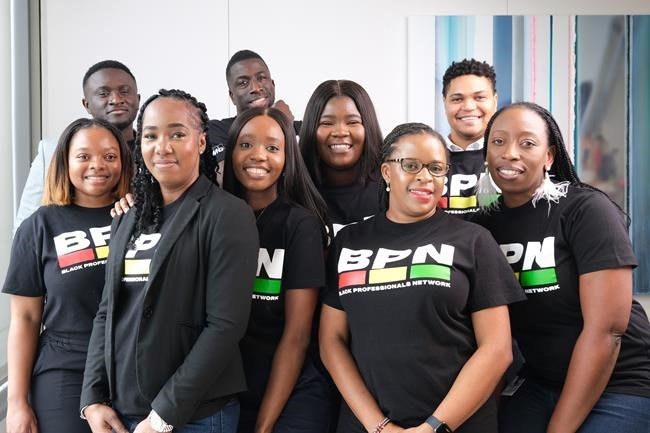TORONTO — Experts say commitments to tackle racism in the workplace have not been met with enough action as a report released Tuesday found more than 70 per cent of Black Canadians still experience racism or microaggressions on the job.
While one-third of respondents to a KPMG survey indicated they experienced less racism at work over the past year, 39 per cent said they faced the same amount or more. Twenty-eight per cent said they experienced no racism.
The survey included 1,001 self-identifying Black employees and was conducted between Dec. 21 and Jan. 9.
Tarisai Madambi, co-lead of KPMG’s Black Professionals Network, said that while many companies have taken steps such as setting diversity targets or establishing employee resource groups to advance racial equity, it's just as important to act on the recommendations of racialized employees.
"This helps organizations better understand the roots of systemic racism and address it," said Madambi.
"For way too long, many of us racialized individuals have sometimes been led to believe that we're imagining our experiences. The experiences are real and they are valid."
According to the survey, 80 per cent of respondents feel they can speak up about racism at work without being stigmatized and that they have allies who will stand up for them when they witness instances of discrimination.
But more than three-quarters of Black Canadian workers said their company needs a major culture change to become more equitable.
The survey found 88 per cent of Black Canadian workers feel companies need stronger commitments and targets for hiring and promoting Black people.
Eighty-six per cent called for more appointments of Black people to boards of directors or senior management ranks, while 82 per cent urged moreanti-racism education and training for employees and management.
Madambi, KPMG's director of management consulting, said Black Canadians want their employers to "walk the talk" on anti-racism commitments that followed the 2020 murder of George Floyd and subsequent calls for change. While she said those commitment have not waned, companies are "struggling in terms of balancing their priorities."
"I think the hardest part is getting the commitment and the conviction that what organizations are doing is the right thing," she said.
"Nobody wants to feel like they are being forced into things. The last thing I would like to see is organizations making commitments because they feel like they're doing this as a checkbox or a compliance matter. It really needs to be something that we believe in."
Gordon Blackmore, a consultant for the Halifax-based Black Business Initiative's Diversity Employment Network, said Black people often stay in jobs where they experience microaggressions due to "fear that things may be worse" elsewhere.
"It's sort of the devil you know is better than the devil you don’t," said Blackmore.
He stressed that companies serious about undergoing institutional change must allocate the same level of resources behind their diversity, equity and inclusion strategies "that they would if they were changing over to a new computer model or a new sort of business process."
"Having your DEI policy is sort of like going to a personal trainer. The personal trainer can develop the plan for you, can let you know what you need to do in order to have success, but at the end of the day, if you don't take that plan and follow it, then you're never going to have the success," said Blackmore.
"Until there's that level of commitment, there's not a lot of positive change that can really happen and I worry that a lot of things will be done as window dressing."
This report by The Canadian Press was first published Feb. 28, 2023.
Sammy Hudes, The Canadian Press




